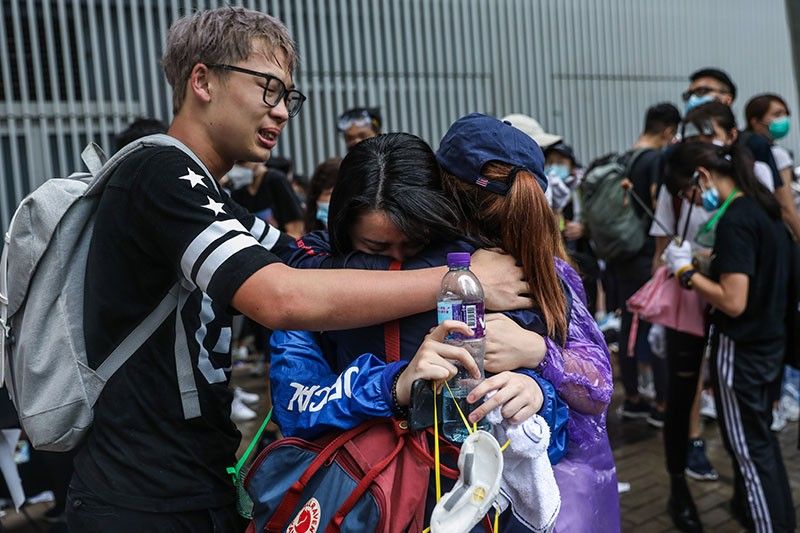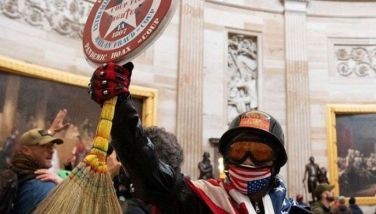Pressure grows on Hong Kong over extradition bill

HONG KONG, China — Hong Kong was facing growing international pressure Thursday over a controversial extradition bill that has prompted violent street protests.
Police used rubber bullets and tear gas to break up crowds Wednesday after demonstrators -- angry over legislation they say would leave people vulnerable to China's politicised justice system -- blocked roads and brought the city to a standstill.
The European Union became the latest grouping to add its voice to a growing chorus of criticism over the bill.
The EU "shares many of the concerns raised by citizens of Hong Kong regarding the government's proposed extradition reforms", it said, calling for the rights of Hong Kongers to be respected.
The economic bloc said the proposed law had "potentially far-reaching consequences for Hong Kong and its people, for EU and foreign citizens, as well as for business confidence in Hong Kong."
Demonstrators who surrounded the city's Legislative Council -- its government -- on Wednesday forced a postponement of the reading of the bill.
But Hong Kong's pro-Beijing leader Carrie Lam has shown no signs of backing down, and said the protests were "organised riots".
Wednesday's violence left 79 people hurt, with two in a serious condition, in the worst political unrest since Hong Kong was handed to China in 1997.
Students, democracy campaigners, religious groups and business representatives in the semi-autonomous territory have spoken out against the extradition bill.
The government says it is necessary to fix a loophole that prevents Hong Kong from sending criminal suspects back to jurisdictions they have fled -- including to mainland China.
But opponents say it would be abused by an increasingly assertive Beijing to pursue its political enemies and to ensnare dissidents in an opaque and politically-motivated justice system.
The international community has also voiced concern.
British prime minister Theresa May said it was vital the proposed law did not breach the UK-Sino agreement signed at the time of the city’s return to China in 1997.
Speaking in Parliament, she said her government was concerned about the "potential effects of these proposals particularly obviously given the large number of British citizens there are in Hong Kong."
US President Donald Trump told reporters in Washington he could "understand the reason for the demonstration" and said he hoped "it all works out for China and for Hong Kong."
After forcefully clearing the streets on Wednesday night, police appeared determined to keep control of the business hub.
Authorities closed several major roads on Thursday morning, and shuttered a major underground rail station -- an interchange for several key lines.
The adjacent high-end Pacific Place shopping mall was also closed, and staff working in the central government administrative building were told the offices would be closed Thursday and Friday.
- Latest
- Trending

































